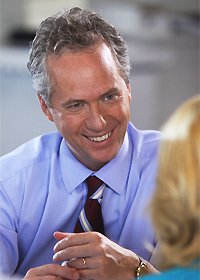 After an extensive review of city programs and policies, Mayor Greg Fischer announced that Louisville Metro Government (LMG) is expanding its internal policies to better prevent and respond to child abuse in any youth-serving city program.
After an extensive review of city programs and policies, Mayor Greg Fischer announced that Louisville Metro Government (LMG) is expanding its internal policies to better prevent and respond to child abuse in any youth-serving city program.
The Mayor ordered the review last spring, following abuse allegations related to the LMPD Explorer program. Noting at the time that Louisville Metro offers programs and partners with many local agencies on children and youth programming, he said a fresh perspective was important to strengthen city policies to ensure they are as comprehensive as possible.
Metro’s Department of Human Resources hired an outside agency, the McNary Group, to assess current youth-serving program policies in Louisville and to identify best practices.
All city employees are required to adhere to the city’s Code of Ordinances, which states, “Any Louisville Metro employee who knows or has reasonable cause to believe that a child is abused shall immediately cause an oral or written report to be made in compliance with KRS 620.030.”
Some agencies had additional policies or practices based on their own program requirements, accreditation or agency oversight, the review found, but the policies varied, often based on program interactions with other entities, such as Jefferson County Public Schools.
McNary made four recommendations to enhance LMG’s commitment to prevent and appropriately respond to allegations of child abuse within government programs, and noted that the adoption of these recommendations “could set Louisville apart as a model and a leader among other cities.”
The recommendations:
- Create Comprehensive Youth Protection Personnel Policy
- Louisville Metro Government should create a comprehensive and holistic youth protection policy for all employees that includes best practices for employee screening, a code of conduct that elaborates on “duty to report” fundamentals, and explicit reporting procedures.
- Training for All Employees
- All employees should receive youth protection training that communicates a culture of zero tolerance and provides a platform to discuss cultural and systemic barriers to understanding and reporting child abuse. Training should define youth protection and child abuse, provide discussion of healthy boundaries, and reinforce the LMG Personnel Policy.
- Educational Campaign
- Efforts should be taken to regularly engage employees and to reinforce a policy and culture that will not tolerate child abuse, including an internal communications campaign and sharing of materials generated through a partnership with national or local organizations working to end child abuse.
- Specific and Relevant Departmental Code of Conduct
- LMG should convene a cross-functional team to further enhance program-and department-specific youth protection policies and practices, including accountability measures.
The next step will involve working with the McNary Group to implement their recommendations.
J.P. Hamm, Metro’s director of Human Resources, said work already is underway to establish a more comprehensive code of conduct and build an educational campaign around it.
Mayor Fischer thanked the McNary Group and Metro’s HR staff for its work, adding that while he believes the vast majority of LMG programs operate effectively and safely, implementation of the new policy will further ensure that all employees know what is required, and all children are safe.
“My concern has always been ensuring that children in our care are protected,” the Mayor said. “These additional safeguards should assure the community that we take the welfare of children seriously.”
 Weather
Weather Traffic
Traffic @LouisvilleDispatch
@LouisvilleDispatch @LouisvilleDisp
@LouisvilleDisp Subscribe
Subscribe